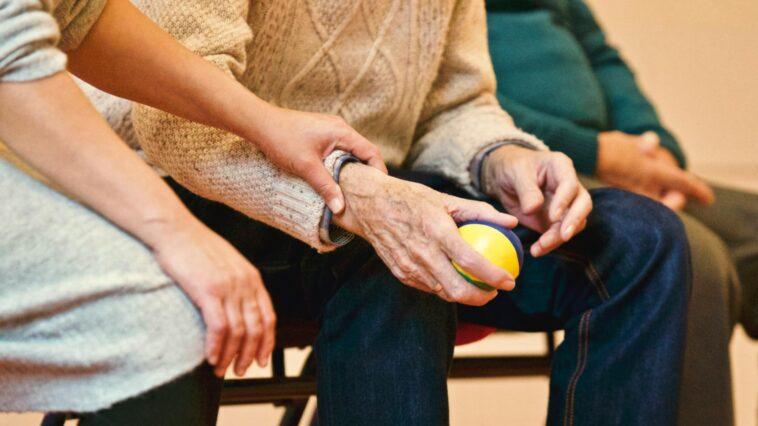If you live in Florida, hurricanes aren’t anything new. If it’s summer or early fall, you know there will be rain and you know there will be hurricanes. Of course, you’re used to it so you know what to do and you know how to best prepare yourself and your home for the storm season.
But what happens in nursing homes, where people are especially vulnerable? Every year, storms barrel through Florida and destroy everything in their path, so what does that mean for an elderly person who depends on others? A hurricane isn’t just a threat to buildings and infrastructure, it can jeopardize lives. And when you imagine what a hurricane can do to a facility that’s not prepared for chaos? It’s hard to even think about that.
The good news is, nursing homes have protocols for storm seasons. They’ve been left with flooded halls and without power too many times and it has caused some changes to be made, so let’s take a closer look.
Evacuation Plans
It goes without saying that evacuation plans are crucial if you plan on being prepared for hurricanes, and if you’re thinking about moving a family member into a facility, this is something you need to ask about. If your loved one is already in a nursing home that doesn’t have proper evacuation protocols and something happens during a storm, you’ll want to contact an attorney. Keep in mind, this is someone who should be close to you, so if you’re in Tallahassee, FL, for instance, find a Tallahassee nursing home abuse lawyer.
If you’re in Tallahassee, then there’s no point in hiring a lawyer from, say, Miami, because you’ll have a hard time cooperating/coordinating with them. Always pick the local option (based on the nursing home’s location).
But before you start suing people left and right, here’s what you need to know. An effective evacuation plan has a safe destination (alternative facility or shelters) and they’re also able to arrange appropriate transportation that complies with ADA. Staff is another major part of safe evacuation.
For example, look at what happened just a short while ago, in October, during Hurricane Milton. It was the biggest healthcare evacuation to date and over 400 facilities (including 76 nursing homes) moved their residents to safe locations. This was a truly large-scale evacuation and it wouldn’t have been possible if the facilities didn’t already have effective protocols in place.
Legal Requirements and Regulations
There are both federal and state regulations all nursing homes in Florida need to stick to and they’re designed to protect residents during emergencies like hurricanes. If a facility doesn’t comply, they’re held accountable for any lapses in care.
Emergency Preparedness
All nursing homes that are part of Medicare or Medicaid programs have to develop and maintain a very comprehensive plan for emergencies. This means that they need to conduct a risk assessment to see what can be potentially dangerous and then implement measures to handle these risks. They also have to work with local emergency management agencies.
These plans have to account for all the needs of the residents in their facilities, like continued medical care and help with mobility. In Florida, the state also has some specific laws on top of the federal ones, that say hurricane preparedness has to be a part of all nursing homes’ operational plans. These state-specific laws make sure that nursing homes have evacuation procedures, agreements for safe transportation, and safe locations where they can move the residents.
Mandatory Compliance Measures
One of the most important compliance measures in Florida is the backup power systems. After the tragedy in 2017 during Hurricane Irma (which caused several nursing home residents to die because of extreme heat), the state of Florida introduced laws that require all nursing homes to have backup generators. The generators have to provide power for air conditioning and other basics for at least 62 hours during an outage.
Communication plans are another factor for compliance. According to them, nursing homes have to keep family members, local authorities, and emergency responders informed about the residents’ safety during hurricanes, which means updates on how the evacuation is going, where the residents are being relocated to, and what kind of arrangements were made for after the storm.
Accountability and Penalties
Regular inspections and surprise visits make sure that all facilities follow emergency preparedness rules. Inspectors will check everything, like whether backup systems are working, what the evacuation plans are like, etc. If the facility doesn’t meet these standards, they’re fined, they can lose their license, or even get shut down.
Conclusion
It doesn’t take a genius to see why Florida would be the place many people want to live in. Its warm weather with lots and lots of sun sounds like a dream, but that period from June to November can be incredibly unpredictable. Floridians are used to it, but those in nursing homes are at a far greater risk than most others.
Luckily, both the state and the country have measures in place to protect them, and if you have a family member in a nursing home, it would be good to check whether they’re really sticking to all the laws and regulations regarding emergency preparedness.







Comments